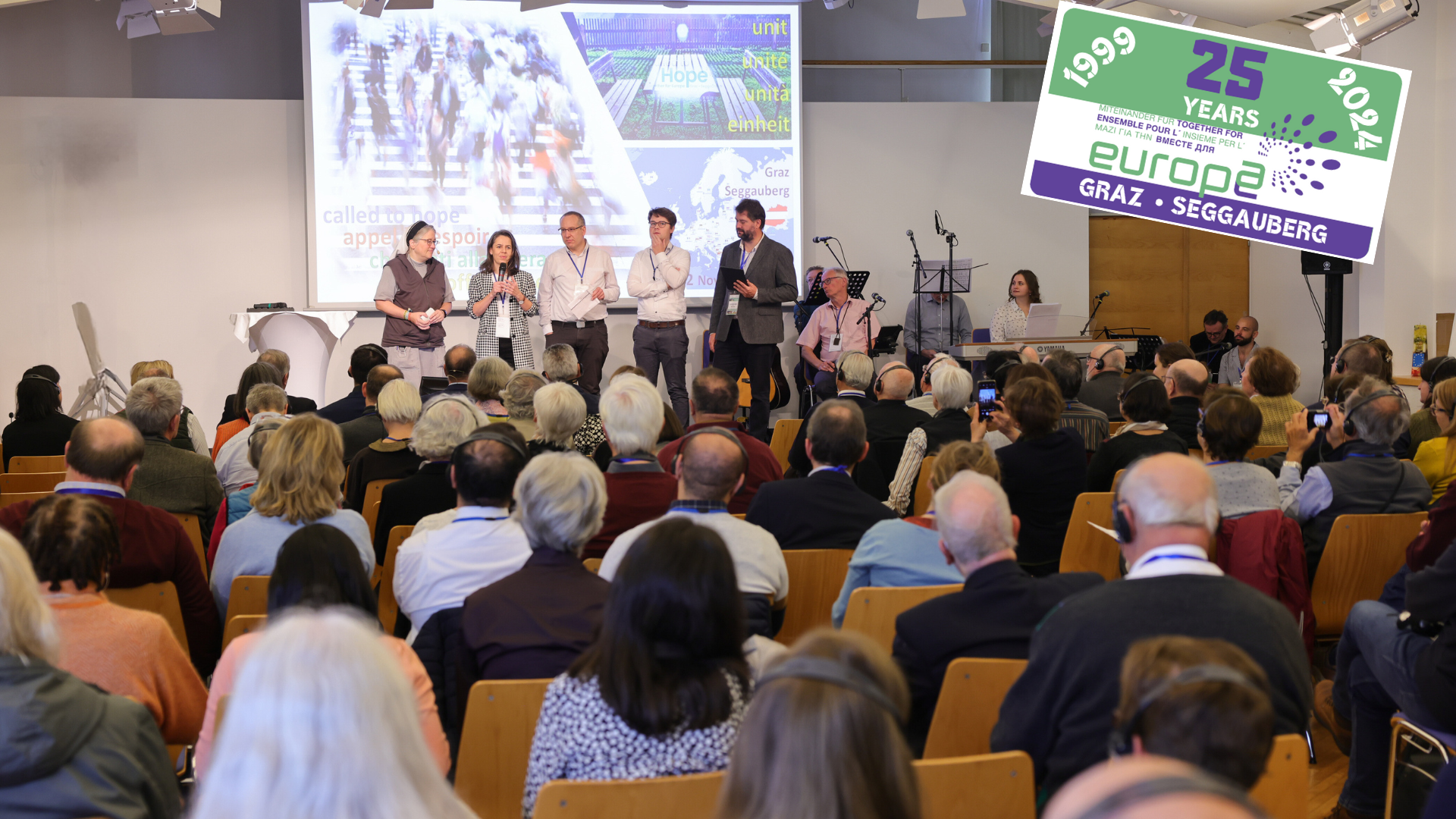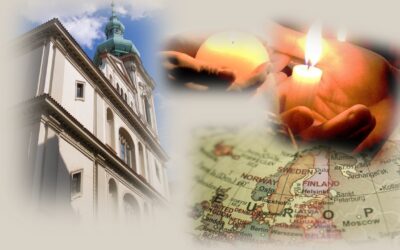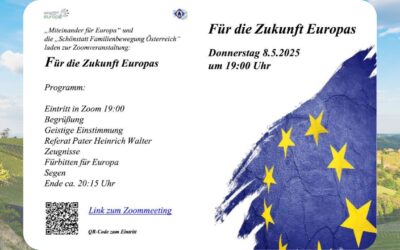For their annual meeting under the auspicious title ‘Called to Hope’ the Friends of Together for Europe were hosted in Seggau Castle near Graz.
Christians from Eastern and Western Europe express hope even in times of war and crisis. One participant summed up his experience as follows: ‘Given the current situation in Europe, I arrived here discouraged and depressed. But these days fill me with new courage and hope’. And a lady who lives in Ukraine: ‘To be ambassadors of reconciliation – this I take away from the Together for Europe meeting. I live in a country at war, where one cannot yet speak of reconciliation. But I feel that being an ambassador is possible, because an ambassador is by definition a diplomat, he doesn’t impose, he delivers and prepares… This is the mission I feel I have to take there where I live. And I will try to do it by trying to be what Jesus Moran says in his speech, ‘an artisan of a new culture’’.
The participants
The participants came from political and ecclesial backgrounds (Orthodox Christians, Catholics, Protestants, Reformed and members of the Free Churches), spiritual leaders and lay people. Among them were Bishop Wilhelm Krautwaschl of the Graz-Seckau Diocese, Bishop Joszef Pàl of the Timisoara Diocese (Romania), Co-President of the International Focolare Movement Jesus Moran (Italy), Reinhardt Schink head of the German Evangelical Alliance, Markus Marosch of the Round Table (Austria), Márk Aurél Erszegi of the Hungarian Foreign Ministry, the former Prime Minister of Slovenia Alojz Peterle and the former Prime Minister of Slovakia Eduard Heger. A delegation from the IAO (Interparliamentary Assembly on Orthodoxy) with Secretary General Maximos Charakopoulos (Greece) and Advisor Kostantinos Mygdalis also attended the conference.
The programme
Talks, testimonies and working groups were central at the conference in Graz-Seggau. After the 2023 experience in Timisoara with the title ‘Called to unity’, the participants in Graz felt in a completely new way that the combination of their charisms and their Churches contains many graces and a hope for our tormented Europe.
Precisely on 31 October 2024 Together for Europe celebrated its 25th anniversary. And Gerhard Pross (YMCA Esslingen), who witnessed the beginning, highlighted in his opening speech the many moments of grace experienced during these years. Another witness of the time, the former bishop Christian Krause, president of the Lutheran World Federation in 1999 and at that time co-signatory of the ‘Joint Declaration on the Doctrine of Justification’, emphasised the importance of Together for Europe in a touching audio message that sounded almost like a testament. ‘Together with others, I want to pick up the baton,’ a younger participant of the Steering Committee promised afterwards.
Three speeches took centre stage on Friday morning. Thomas Römer (YMCA Munich): ‘We want to make ourselves available so that Jesus can also bless Europe through us, to us Christians He puts the key to reconciliation in our hands. We want to aim for the love to which Jesus calls us and not for power’. Jesús Moran (Focolare Movement) explained: ‘‘Things don’t change overnight, what is important are the artisans, the cultivators of a new culture, who patiently work and sow, who hope… The whole we are talking about is not a whole in the sense of a union. Unlike union, unity considers subjects as persons. Its goal is communion… While in union diversity is a source of conflict, in unity it is a source of richness. Unity ultimately refers to something that is beyond the participants, that transcends them and is therefore not made but received as a gift’. P. Raffael Rieger (Schönstatt Movement) said: ‘We need various communities so that people in variety can find their home and grow. Collaboration between the various communities to realise the 7 Yeses (YES to family, to creation, to solidarity with the poor, to peace, to a fair economy, to peace, to commitment in society) is a sign of unity and hope for society and the world.
At the conclusion of the second day, the participants solemnly renewed the Pact of Mutual Love, the basis of their common commitment. ‘We continue on the path we have taken together, trusting that the Holy Spirit will guide us also in the future; we follow Him wherever He leads us,’ said one conference participant.
On the last day, the meeting was open to the inhabitants of the region, among them Siegfried Nagl (former mayor of Graz from 2003 to 2021), who actively supported the work of Together for Europe during his term of office.
How do we get out of the current polarisation and into Togetherness? This was the question for the panel discussion with Bishop Krautwaschl, Alojz Peterle, Eduard Heger and Vienna University Professor Ingeborg Gerda Gabriel. Christians should show more their identity with respect, but with conviction and competence. ‘Even words are actions’, the professor argued. At the same time, it is necessary to ‘disarm’ words and listen. Given the empty rhetoric and fake news, it takes strength to stay focused on essential issues like God, justice… and it is important to be able to withstand the resistance of others. In this way it is possible to move from polarisation to Togetherness.
The network is planning a major event for 2027 with the aim of sending together a powerful signal of unity and hope to Europe.
Beatriz Lauenroth
Photo: G. Neuhold





0 Comments